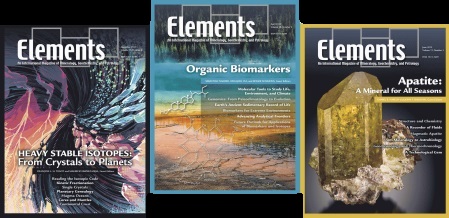Forming Earth’s Continental Crust: A Nontraditional Stable Isotope Perspective
The formation of continental crust via plate tectonics strongly influences the physical and chemical characteristics of Earth’s surface and may be the key to Earth’s long-term habitability. However, continental crust formation is difficult to observe directly and is even more difficult to trace through time. Nontraditional stable isotopes have yielded significant insights into this process, leading to a new view both of Earth’s earliest continental crust and of what controls modern crustal generation. The stable isotope systems of titanium (Ti), zirconium (Zr), molybdenum (Mo), and thallium (Tl) have proven invaluable. Processes such as fractional crystallization, partial melting, geodynamic setting of magma generation, and magma cooling histories are examples of processes illuminated by these isotope systems.
Forming Earth’s Continental Crust: A Nontraditional Stable Isotope Perspective Read More »


